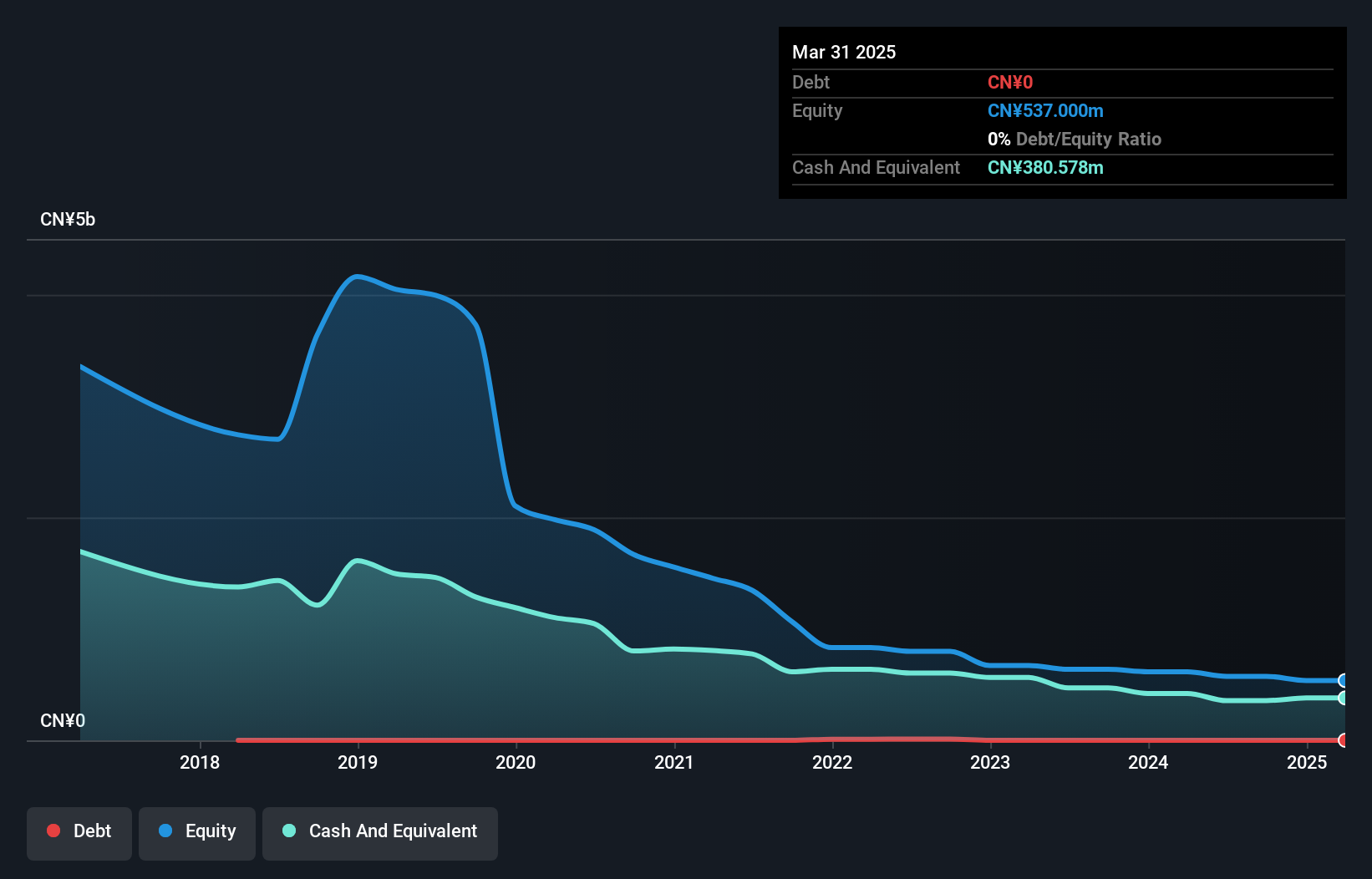Is MOGU (NYSE:MOGU) In A Good Position To Deliver On Growth Plans?
There's no doubt that money can be made by owning shares of unprofitable businesses. For example, although software-as-a-service business Salesforce.com lost money for years while it grew recurring revenue, if you held shares since 2005, you'd have done very well indeed. But while the successes are well known, investors should not ignore the very many unprofitable companies that simply burn through all their cash and collapse.
Given this risk, we thought we'd take a look at whether MOGU (NYSE:MOGU) shareholders should be worried about its cash burn. For the purposes of this article, cash burn is the annual rate at which an unprofitable company spends cash to fund its growth; its negative free cash flow. The first step is to compare its cash burn with its cash reserves, to give us its 'cash runway'.
Does MOGU Have A Long Cash Runway?
A company's cash runway is calculated by dividing its cash hoard by its cash burn. As at March 2025, MOGU had cash of CN¥381m and no debt. Importantly, its cash burn was CN¥78m over the trailing twelve months. So it had a cash runway of about 4.9 years from March 2025. There's no doubt that this is a reassuringly long runway. You can see how its cash balance has changed over time in the image below.

See our latest analysis for MOGU
How Well Is MOGU Growing?
It was fairly positive to see that MOGU reduced its cash burn by 42% during the last year. Unfortunately, however, operating revenue declined by 13% during the period. On balance, we'd say the company is improving over time. In reality, this article only makes a short study of the company's growth data. You can take a look at how MOGU has developed its business over time by checking this visualization of its revenue and earnings history.
Can MOGU Raise More Cash Easily?
There's no doubt MOGU seems to be in a fairly good position, when it comes to managing its cash burn, but even if it's only hypothetical, it's always worth asking how easily it could raise more money to fund growth. Companies can raise capital through either debt or equity. Many companies end up issuing new shares to fund future growth. By looking at a company's cash burn relative to its market capitalisation, we gain insight on how much shareholders would be diluted if the company needed to raise enough cash to cover another year's cash burn.
MOGU's cash burn of CN¥78m is about 50% of its CN¥155m market capitalisation. From this perspective, it seems that the company spent a huge amount relative to its market value, and we'd be very wary of a painful capital raising.
Is MOGU's Cash Burn A Worry?
On this analysis of MOGU's cash burn, we think its cash runway was reassuring, while its cash burn relative to its market cap has us a bit worried. While we're the kind of investors who are always a bit concerned about the risks involved with cash burning companies, the metrics we have discussed in this article leave us relatively comfortable about MOGU's situation. Taking a deeper dive, we've spotted 2 warning signs for MOGU you should be aware of, and 1 of them is potentially serious.
Of course, you might find a fantastic investment by looking elsewhere. So take a peek at this free list of companies with significant insider holdings, and this list of stocks growth stocks (according to analyst forecasts)
New: Manage All Your Stock Portfolios in One Place
We've created the ultimate portfolio companion for stock investors, and it's free.
• Connect an unlimited number of Portfolios and see your total in one currency
• Be alerted to new Warning Signs or Risks via email or mobile
• Track the Fair Value of your stocks
Have feedback on this article? Concerned about the content? Get in touch with us directly. Alternatively, email editorial-team (at) simplywallst.com.
This article by Simply Wall St is general in nature. We provide commentary based on historical data and analyst forecasts only using an unbiased methodology and our articles are not intended to be financial advice. It does not constitute a recommendation to buy or sell any stock, and does not take account of your objectives, or your financial situation. We aim to bring you long-term focused analysis driven by fundamental data. Note that our analysis may not factor in the latest price-sensitive company announcements or qualitative material. Simply Wall St has no position in any stocks mentioned.
About NYSE:MOGU
MOGU
Through its subsidiaries, operates an online fashion and lifestyle platform in the People’s Republic of China.
Flawless balance sheet with very low risk.
Market Insights
Community Narratives



